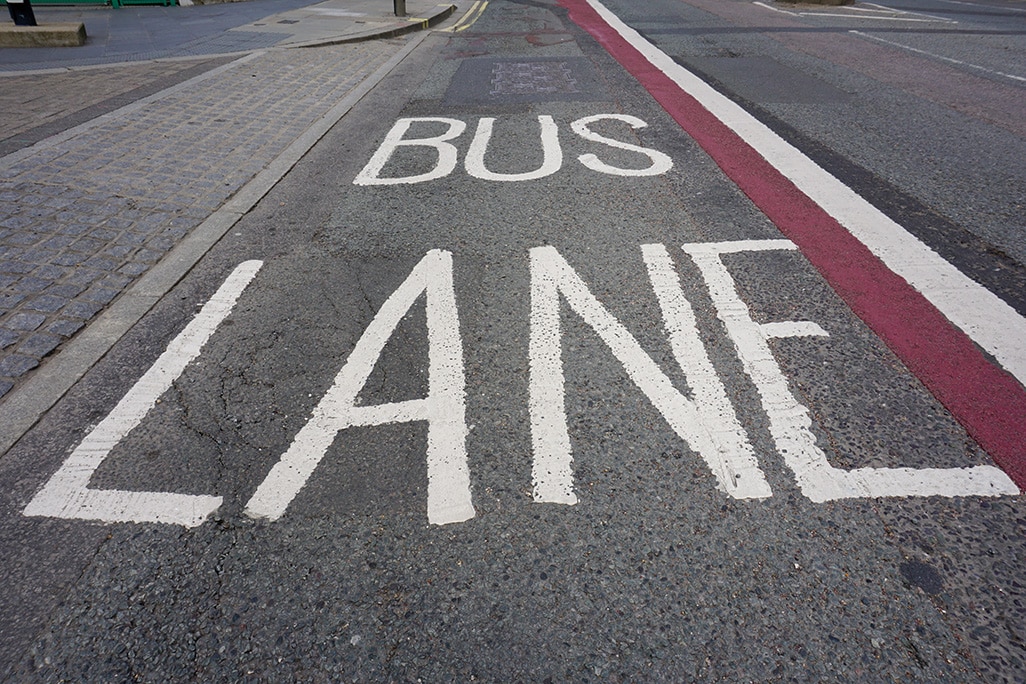The government-supported bus fare cap initiative is set to end in December. With a view on 2026, we asked the industry whether such schemes are the best way to spend limited funding available for bus
With the government-financed bus fare cap scheme in England due to end in December, the bus sector awaits news of what will come next.
While it seems unlikely there will be a directly equivalent further continuation of what began in January 2023 as a short-term initiative, it has been suggested that funding for an alternative reduced fares scheme may still be on offer.
However, while the industry sees value in such schemes, it has been argued that better long-term return for the sector could be gained from the money being directed elsewhere.
At a Transport Committee session last month, Secretary of State for Transport Heidi Alexander strengthened expectation that the cap — raised from £2 to £3 in 2025 — would end.
“It is a time-limited intervention which … comes to an end at the end of this year,” she said, although a hint of uncertainty could be interpreted when she later added: “It is due to expire at the end of December.”
We believe that, when the current fare cap comes to an end, replacing it with a fare cap for young people is a good option – Alison Edwards, CPT
The Chancellor’s Spending Review, which is due to take place next month, will be crucial for what will follow the scheduled end of the fare cap scheme. If funding is to be available for bus, a continuation of the single fare cap may be easiest to implement.
Yet a move to more targeted fare interventions, such as discounts or caps for the young, has apparently been considered. Such a scheme for under-22s exists in Scotland and a pilot for one is due to start in Wales in September. The approach is designed to encourage public transport use among a new generation, although it is not without its critics.
CPT supports youth idea
The Confederation of Passenger Transport (CPT) is among those supporting the idea of discounts for younger travellers, although it adds a belief that the fare cap scheme has represented good value for money.
It estimates a £1 fare for under-22s would cost £100-150 million per year to deliver. For comparison, the £3 fare cap is costing the Treasury £150 million in 2025.

Alison Edwards, Director of Policy and External Relations at CPT, says: “When considering the cost – and subsequent trade-offs – of delivering the fare cap in the current fiscal environment, along with the government’s wider policy goals, we believe that, when the current fare cap comes to an end, replacing it with a fare cap for young people is a good option for supporting those who tend to be on lower incomes to access education and employment, as well as promoting longer-term sustainable travel habits.”
CPT added that it recognises that any bus fares subsidy needs to be supported by a good bus network.
Funding needed elsewhere
David Astill, Chair of ALBUM and Managing Director of Nottingham City Transport, says ALBUM does not believe the fare cap will be extended beyond of this year. He says the scheme has been positive for some members of the association but has had a negligible impact for others.
He adds: “We also take the view that, if there is any money available to continue a fare cap scheme of some sort, it should be concentrated perhaps on the younger age groups. There are examples around the country from Enhanced Partnership schemes where there are fare caps in place for younger customers and they seem to have been fairly well received.”
As to the notion of supporting discounted or capped prices for daily or weekly tickets, he says: “I think, for the SME sector that is taking the commercial risk on its business, we really want to have control of our fares. Moving to a weekly cap poses all sorts of serious considerations for the SME sector.”
However, more broadly on where he thinks money should be invested, he adds: “I think, overall, the industry would say we’d like to see money focused on growing the network rather than capping fares. The issue with the fare cap is there always has to be an exit strategy and, the longer it continues, the harder that exit strategy becomes.”
‘Exit strategy’ issue
The “exit strategy” problem was echoed by Robert Williams, Chief Executive Officer of Reading Buses, while he admitted there is a role for fares initiatives.
He adds: “Where funding is limited, investing in something that will have a lasting benefit to bus users and the services that can be provided — for example, bus priority measures — is preferable to something that might have a short-term impact but causes problems when the funding comes to an end.
“Bus priority also helps to keep fares low by minimising running costs, but with the extra benefit of making the service more attractive as well.”

He adds: “Introducing bus priority, introducing revenue support for marginal services and journeys, and reducing fares will deliver more value in combination, as identified within the National Bus Strategy, than doing everything in isolation.
“Some sort of continued fare cap for longer distance journeys does have merit — which bus user wouldn’t like lower fares if it doesn’t impact on the service provided?”
Centrebus Director Julian Peddle would like to see no continuation of the fare cap scheme. He says: “Other support for the industry is far more important, given the state of the government’s finances.”
Bus Users UK response
Although the need for funding for bus priority and network growth is greater appreciated within the industry than out of it, it is clear that fare discounts are popular with the public. That was pointed out by Lydia Horbury, Bus Users UK Director for England.
“The… fare cap has been a lifeline for millions of passengers and dropping it at a time when living costs continue to rise would be catastrophic,” she says.
“Without alternative, ring-fenced funding, services will inevitably be cut, so it is essential that funding from the fare cap is reinvested in ways that continue to support services.
“That could be through capped daily fares, free or reduced-price travel for young people, or meaningful investment in bus priority measures that make services faster and more reliable and encourages modal shift.”
She also says that Bus Users UK would like to see the national concessionary travel scheme updated so that older and disabled passengers can travel at peak times.



























